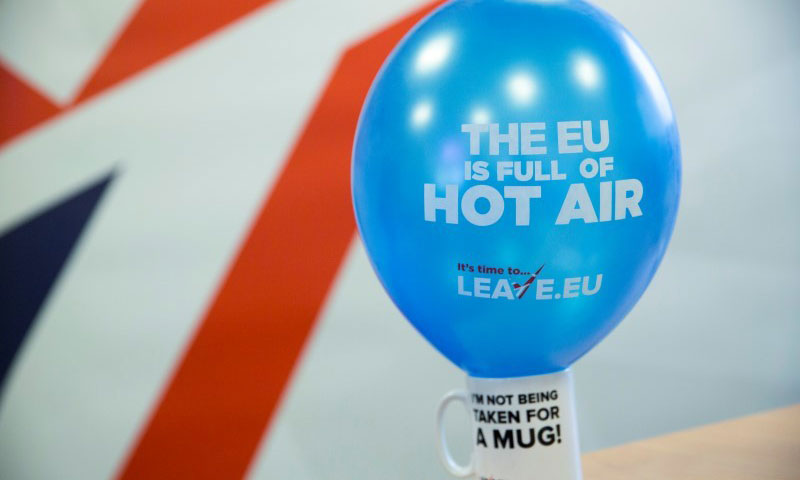
Trade Groups Speak Up Ahead of Brexit Vote
Thursday's vote to decide the future of the United Kingdom's membership in the European Union has a variety of industry bodies speaking up, both for and against the move. The vote could have significant ramifications on the global economy, groups on both sides say.
Ultimately, the United Kingdom’s decision to exit the European Union, known as the Brexit, rests in the hands of voters—who vote on the issue on Thursday.
But trade groups both inside and outside the country have been speaking up about the potential effects of the vote, which is too close to predict. Among those speaking up:
Large businesses strongly opposed to Brexit. The Brexit has found opposition particularly from large corporations worried about the effect on the global economy. The Wall Street Journal notes that firms such as Rolls-Royce, Novartis AG, and Nestlé have opposed severing the relationship, warning that doing so could make certain regulatory processes more complicated. On Monday, the Society of Motor Manufacturers and Traders noted that more than three-quarters of its member companies oppose the Brexit. “The UK motor industry has today restated its view that staying in the European Union is best for its business and best for British jobs, just days ahead of the referendum on the UK’s membership of the EU,” the group said in a news release.
Foreign trade group warns of broad impact. The European Union was created in an effort to bring about easier trade and interactions between the continent’s many governments. And an industry group representing one of the EU’s largest countries warns that trade will be harder to come by if the Brexit occurs. The Federation of German Wholesale, Foreign Trade and Services noted Tuesday that German exports would likely fall if the referendum succeeds. “Brexit leads to insecurity and a loss of trust over the years. This is poison for the economy in the U.K. and in all of Europe,” said the group’s president, Anton F. Börner, in comments to MarketWatch.
A groundswell of support among U.K. small businesses. Larger companies may be strongly opposed to the exit, but smaller business more directly affected by EU regulations tend to be more supportive of the move. The issue has caused some heartache for the British Chambers of Commerce: In March, the group’s director-general, John Longworth, resigned after his public support of an EU exit caused scandal; but the group has also released polls in recent months showing that nearly 40 percent of its members support such an exit, though more than half say that it’s better to remain.
Scientists deeply opposed to Brexit. A recent letter written by the Royal Society at the University of Cambridge and sent to the editor of The Times [subscription] strongly spoke against leaving the European Union, and that opinion is particularly strong among the science community as a whole. According to a recent poll’s results, published in Nature in March, more than 80 percent of responding British scientists were against the Brexit. The MIT Technology Review noted that much of the country’s scientific funding comes from the EU.
Gold traders keep it cool despite risks. The price of gold has been going a little crazy in the days ahead of the Brexit vote, but while the vote has some experts concerned, others are a little less wary. In Thailand, for example, the country’s Gold Traders Association says that it believes the vote would have a limited effect on the price of gold. “Even if Britain decides to leave the EU, which would definitely boost gold prices, I don’t think prices would go through the ceiling of $1,350 because rising supply will cool down demand from those investors who shift to save havens,” association president Jitti Tangsithphakdi told The Bangkok Post.
A balloon highlighting a pro-Brexit slogan. (Neil Hall/Reuters)






Comments